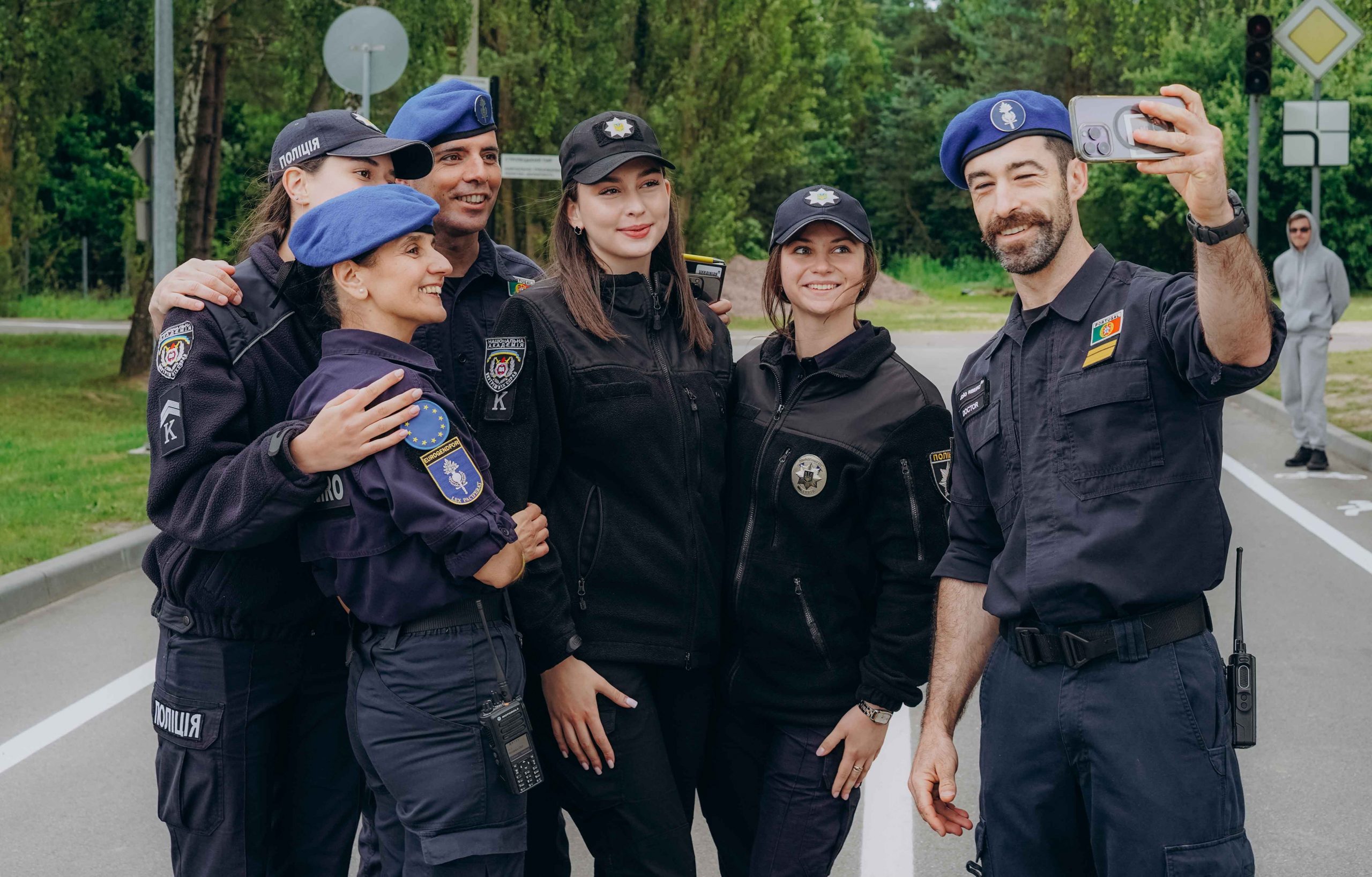“We all need to know how to respond when a person breaks down or becomes disoriented due to crisis situations caused by the war”
July 21, 2025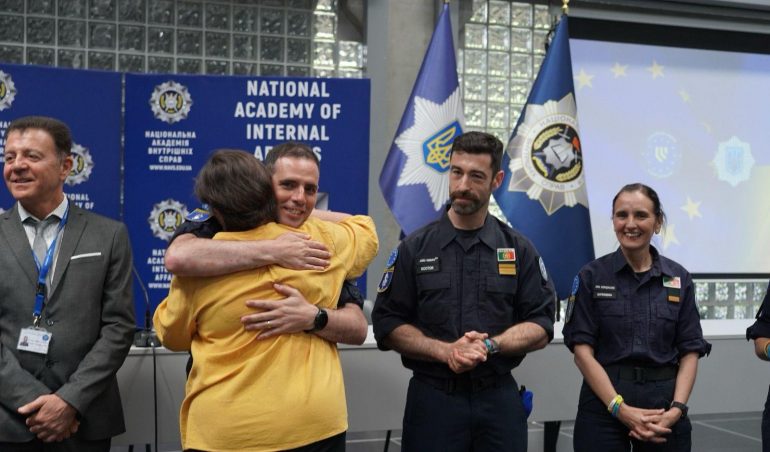
In May–June, EUAM Ukraine organised a training-of-trainers on psychological first aid. Specialists from the Portuguese National Guard — who for many years have been providing psychological support not only to fellow officers but also to victims of traumatic incidents in their country — came to Ukraine to share their expertise. They trained those who hold the line on Ukraine’s psychological front every day: professionals who work with trauma, pain, and loss that have become part of daily life in Ukraine.
One of the participants of the training was Olena Bohdan. She knows firsthand what loss is — and how important it is to transform personal pain into a source of strength to help others. We spoke with Ms Bohdan about her experience, the importance of this kind of training, and why psychological first aid skills are essential today for everyone who works with people.
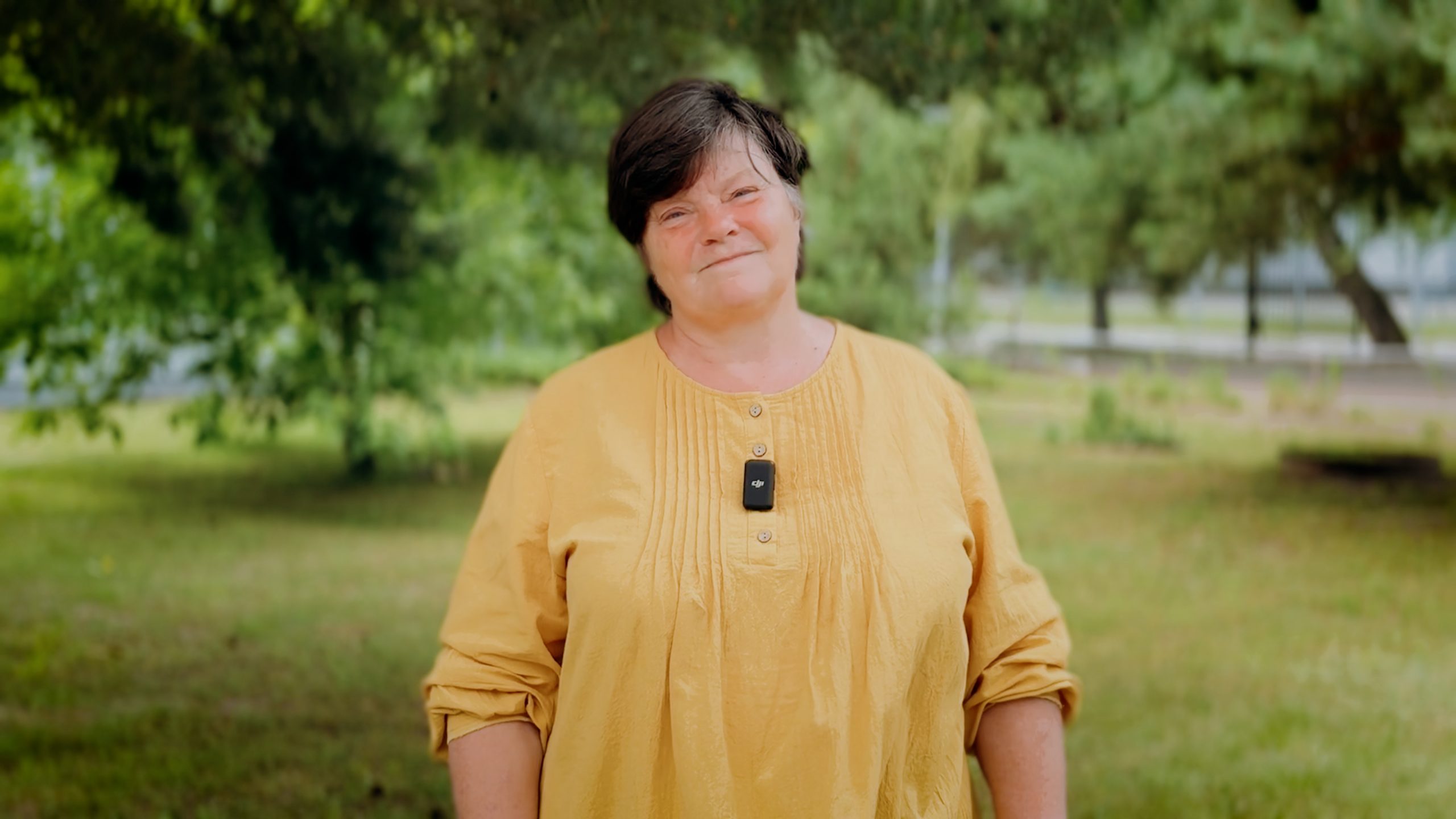
Please tell us a bit about yourself. What is your professional background?
I am a psychologist, crisis consultant, trauma therapist, a representative of the National Psychological Association of Ukraine, and a senior research fellow at the Institute of Social and Political Psychology of the National Academy of Educational Sciences of Ukraine.
Why did you decide to take part in the psychological first aid training?
My motivation stems from the reality we live in. Today’s Ukraine is in a constant state of crisis — the crisis of war. Every day, as crisis consultants, we face situations where people need immediate psychological support: after shelling, after receiving devastating news, or when previous traumatic experiences are suddenly triggered.
This training was important for me not only in terms of personal development — I have been working in the field of crisis psychological support for the past three years. But even more important for me is the ability to train others. That’s why I need clear, structured protocols that I can pass on. For example, we recently returned from a military training site, where military officers asked us: “Give us algorithms on how to inform families about the death of their loved ones,” or “How can we prevent suicidal intentions of someone in our unit?”
In addition to my work as a crisis consultant, I actively collaborate with educators and participate in support programmes for mothers, soldiers’ wives, and other Ukrainians affected by the war. In my view, it’s not only psychologists who should be able to provide psychological first aid. These skills and this knowledge should be available to everyone working with people — teachers, social workers, medical professionals, law enforcement officers. In a moment of crisis, people must not feel helpless — they need to know what to do. We all need to know how to respond when a person breaks down or becomes disoriented due to crisis situations caused by the war.
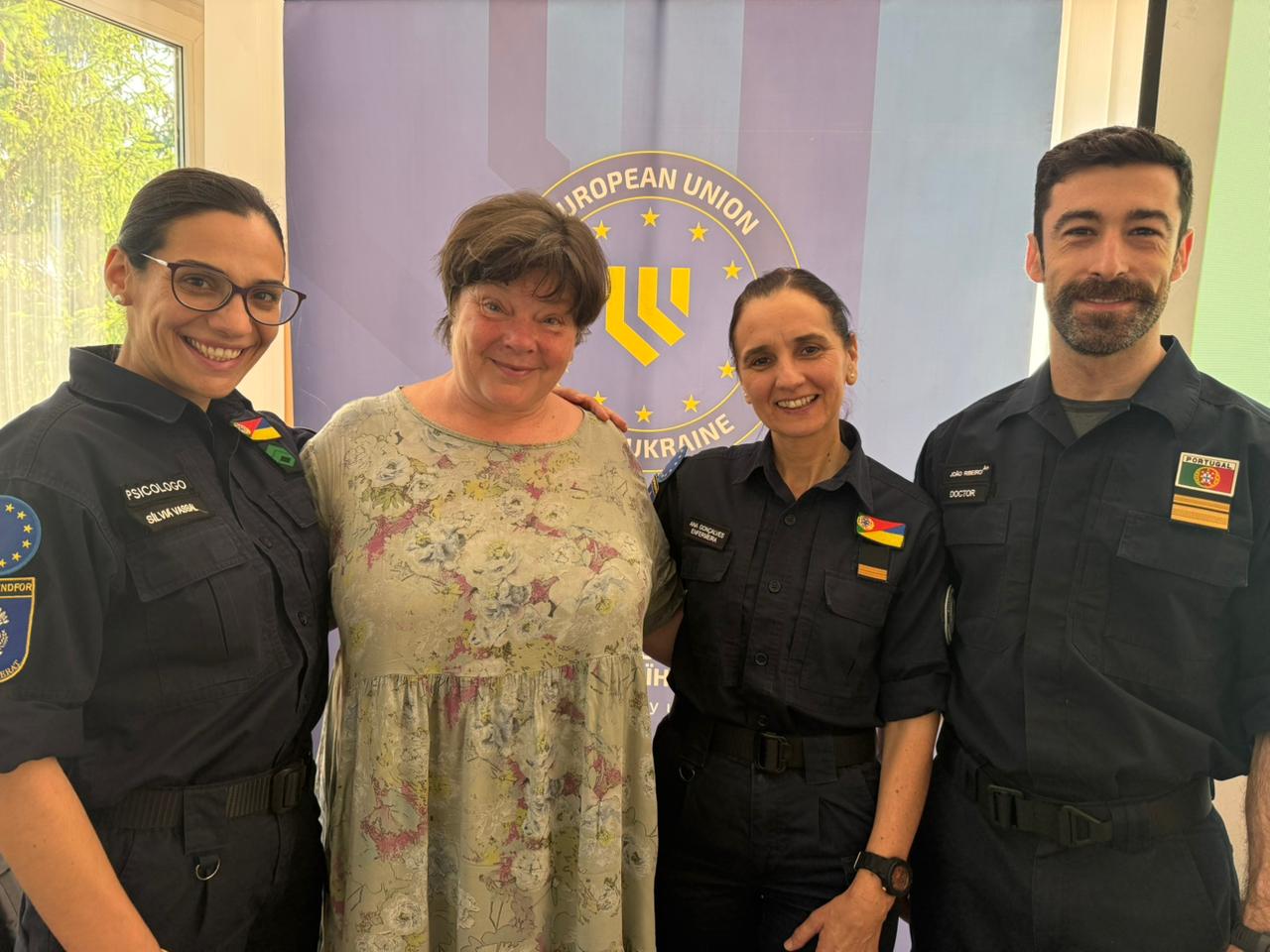
Did the training meet your expectations?
Absolutely. Previously, we gathered knowledge in bits and pieces from isolated seminars or specialised online sources. These were mostly intuitive practices we developed ourselves because we needed to respond quickly to crisis situations. Now, this intuitive knowledge I had, has been placed within a clear and structured framework. And that structure gives a sense of confidence, which in turn enhances professionalism and allows us to help more effectively and meaningfully. It also enables me to teach others how to provide psychological first aid. Because now, I know exactly what I’m doing, and I know how to explain it.
The work of psychologists often requires dealing with deeply personal experiences. And any training, including this one, is no exception. What was the most memorable part of the week for you personally?
This training became deeply personal for me. I have gone through a crisis myself. Two months ago, my son was killed on the front line. But when I am on duty — helping people, carrying forward the idea of a free Ukraine — that is the best way for me to overcome my own trauma, my own pain. It is my path through grief: to stand beside others who are hurting too. What stayed with me most was this simple truth: we are unbreakable. We will overcome. And we stand together.
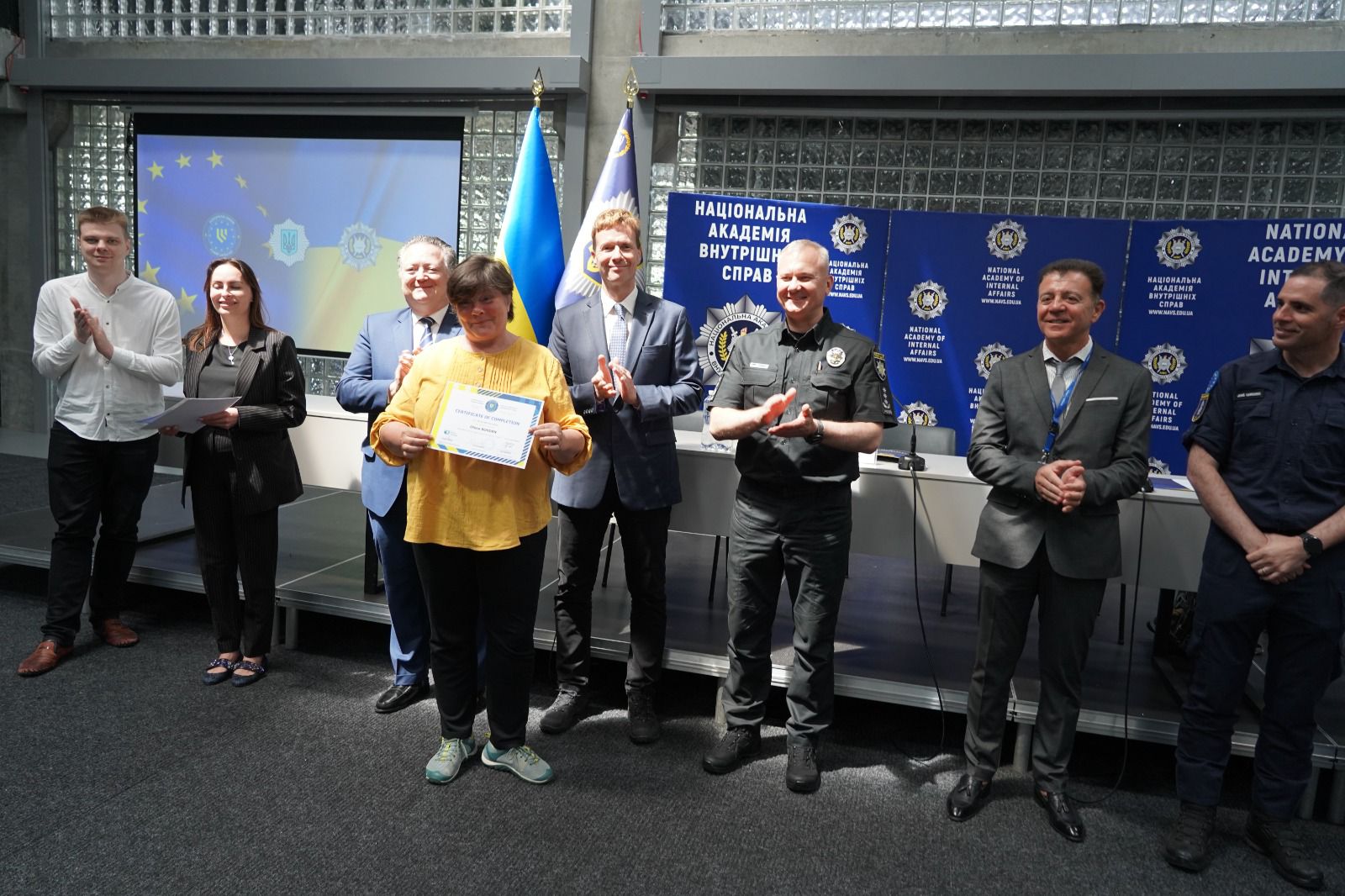
What did the trainers from peaceful Portugal offer to psychologists in a country living through war?
Perhaps the most valuable thing they brought us was their mental stability. From within, we can no longer fully grasp just how deeply we’ve been traumatised by war — how much living in constant stress has affected us. The presence of the European trainers reminded us what psychological balance looks like — and that is exactly what we need to remain effective in our work.
I also want to thank the Portuguese trainers for not hesitating to come to Ukraine and share their knowledge, practices, protocols, and techniques — this was incredibly valuable for us. But our Portuguese colleagues did even more: they brought with them a spirit of support and deep human solidarity. They didn’t just teach — they stood with us, shoulder to shoulder, during air raid alerts, continued training in shelters, and stayed with us through long nights of aerial attacks. That gave us a powerful feeling that we are not alone in this world. That there are those who stand with us. Who fight alongside us — not only with weapons, but with presence and compassion. That is inspiring. And that truly matters.
